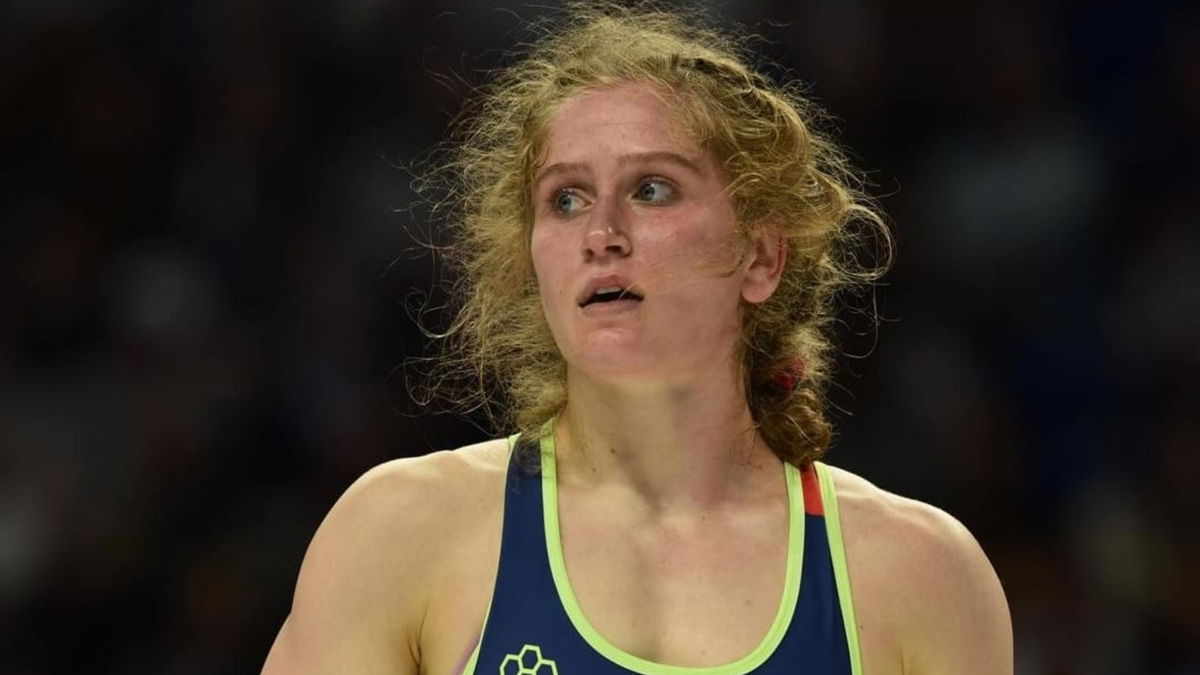

“I’m still in disbelief,” said Amit Elor after clinching gold at the Paris Olympics. The 20-year-old, now the youngest Olympic champion in American wrestling history, showcased her dominance by defeating Kyrgyzstan’s Meerim Zhumanazarova 3-0 in the 68-kilogram weight class. Coached by UFC Olympic silver medalist Sara McMann, Elor has become the third American woman to win Olympic gold in wrestling, following in the footsteps of Helen Maroulis and Tamyra Mensah-Stock. Despite her success, Elor’s journey was marked by persistent negativity, proving that even the best face battles off the mat.
Watch What’s Trending Now!
But her path to Paris was tough. She faced constant negativity during training, which made her question her abilities. Elor opened up about these struggles, resonating with many athletes who face similar challenges. While winning in Paris was a highlight, Elor emphasized the importance of mental well-being and enjoyment in sports. Her words sparked discussions about how success shouldn’t come at the expense of an athlete’s health. After her win, FloWrestling highlighted this issue by sharing a post on X with a photo of Elor and a clip from her interview, captioned, “Even Olympic champions can have self-doubt at points in their career #paris2024.” Although Elor chose not to dive deeply into her mental health, she did mention that her training environment had become unpleasant, saying, “My training environment just became not enjoyable anymore.”
Even Olympic champions can have self doubt at points in their career #paris2024 pic.twitter.com/60usru9o08
— FloWrestling (@FloWrestling) August 8, 2024
ADVERTISEMENT
Elor continued with sadness on her face, how she used to feel all the negativity in those days. There was a time when she was convinced she was a terrible wrestler. Being called a weak competitor frustrated her, as wrestling is about being the strongest. So, the constant pressure of motivating herself and dealing with all the negative comments literally took a toll on her mental health. While she almost convinced herself that she was not good at wrestling, that now made her think, “which is funny, I’m an Olympic Champion.” The fruitful results, however, came as she was really hard on herself. She took the situation as a challenge, which snatched her bravery and converted it into a victory.
Amit Elor’s triumphs at the Paris Olympics
Amit Elor won her gold medal match 3-0 at the Champ-de-Mars Arena. This victory marked her 41st consecutive win in international matches across different age groups since 2019. Elor typically competes in the 72-kilogram weight class, but for the Olympics, she had to compete in a lower weight class due to the limited number of weight classes for women, with only six available instead of the usual ten. Dropping to a lighter weight was hard for Elor before the Olympics in Paris. She lost around ten pounds, which was a big challenge before the games. “It was one of the best moments in my life,” she said to Sportstar after winning the match.
ADVERTISEMENT
In her first two matches, against the current world champion Buse Tosun from Turkey and Wiktoria Choluj, she won by a total score of 18-2. She scored as many points in the two matches as her opponents scored against her in all of her matches since she last lost in 2019 – showing just how unbeatable she has been. Elor previously won eight world titles across three age group categories − senior, under-23, and under-20. Despite her mental challenges, Elor clinched victory through sheer determination. After her monumental win, she wrapped the US flag around her and joyfully skipped around the mat. “I think I’m going to remember it for my entire life,” she told Sportstar. Elor attributes her success to keeping things simple and avoiding overthinking. Her journey shows how an athlete’s focus can overcome even the toughest obstacles on the path to greatness.
ADVERTISEMENT
ADVERTISEMENT
ADVERTISEMENT

